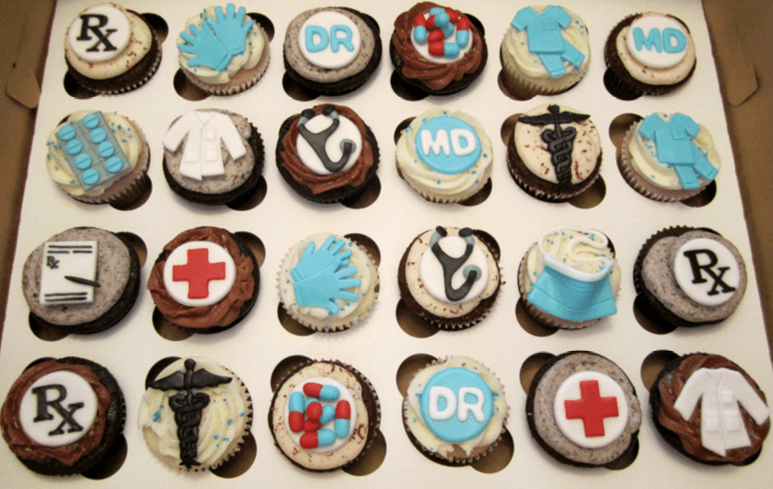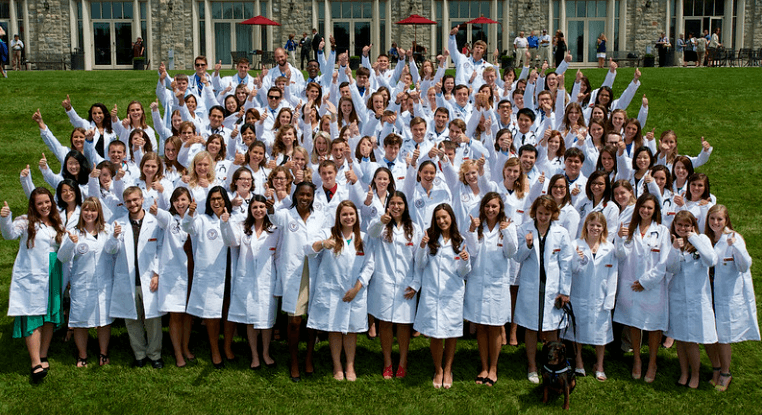How Hard Is Medical School | It’s Worth it So Don’t Get Discouraged
Is Medical School something you’re still unsure about? It’s common to be fearful of the lengthy commitment you’re putting into for more than ten years of your life. If you don’t personally know someone who can give you the inside scoop about the process it can seem daunting and unreachable.
However, our team wants to ensure that you can get in. Med-school is all about a series of steps and consistency. As long as you take it one step at a time you’ll find yourself closer and closer. You need to maintain consistency because you’ll be studying for long periods and having to work long hours. Continue reading for more information.
How Hard Is Medical School
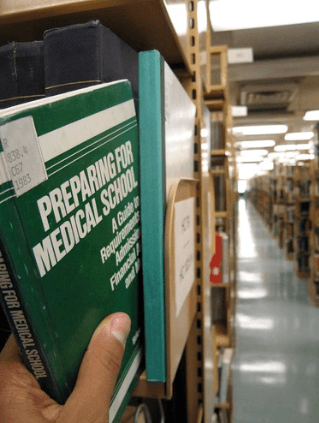
Are you scared of Medical School? This question can make you feel all sorts of emotions such as fear, excitement, and doubt. It is a long process and every step weeds out students who can not keep up. Every step matters because medical school depends on a series of tests.
It begins from your early high school SATs to your undergraduate coursework. If you’re declared as premed you’ll be exposed to organic chemistry and biology. All the beginning steps are crucial to see how fit you are for med school. Each accomplishment can either move you forward or bring you back.
Med-school itself is a result of your preparation and willingness to adapt. It’s one of the hardest fields to accomplish, however as you continue your process of adjusting and preparing you can endure med-school.
It’s important to consider each step carefully and take it seriously. At this point, you'll likely have purchased one of the MCAT prep books we reviewed here to help you improve your MCAT score and know that MCAT courses are worth it. Ultimately the path to get into med school is what you make of it. If you maintain a positive and growth mindset you can continue to progress with each step.
What’s So Hard About Medical School?
Medical school will require you to commit long hours and mental energy. Med school is all about the intellectual persistence. You’ll be thinking critically on all levels from biochemistry, physiology, pharmacology, anatomy, and histology. There’s so many lessons and on top of that you have to interact with patients.
In the beginning you have to dive into layered topics of microbiology and genetics. After that you have to take what you learned and apply it to the doctor-patient relationships. This will put your knowledge to the test. As you continue to get more advanced you’ll learn about how to treat these health ailments.
It gets harder as you have to complete clinical rotations which included reports and physical exams for your patients. Also the level of your responsibility will increase as you have to complete clinical work with course work. Your patient care hours will increase and you have to manage good mental management.
The long hours and exams will bring you emotional challenges. You’ll be presented with numerous amounts of stressors that can leave you feeling burnt out. Throughout the process, not only do you have to adjust to the learning curriculum, but you’ll need to continue to maintain emotional well-being so you can learn as a student and as a prospective doctor.
Getting into Medical School
Before you think about applying to medical school you want to break down what you’ll be studying. One of the hardest topics is medicine. It is multi-faceted and combines a series of topics such as methodology, science, professionalism, and empathy. The amount of knowledge that you have to acquire is difficult and acceptance rates are generally low.
Medical school wants students that are excelling academically. Your MCAT score needs to strive to be higher than average. The strict view on academics is what makes it so hard to get into med school. Everyone who is applying is the top 10% of your class. You need to stand out academically in order to be noticed by med schools.
There’s a shortage of acceptance rates which takes into account the first application cycle. You need to have a strong plan to get in. You can’t just study the MCAT material you need to make sure that you have stellar extracurricular activities. Consider doing volunteer work or working at a local clinic. The more you get started the more competitive you can appear.
Also you need to get effective letters of recommendation. You want to be doing research with these professors and want to further your process by not only excelling in their classes, but improving throughout the semester. Think about every aspect of your application and give yourself amply time to complete it to the best of your ability.
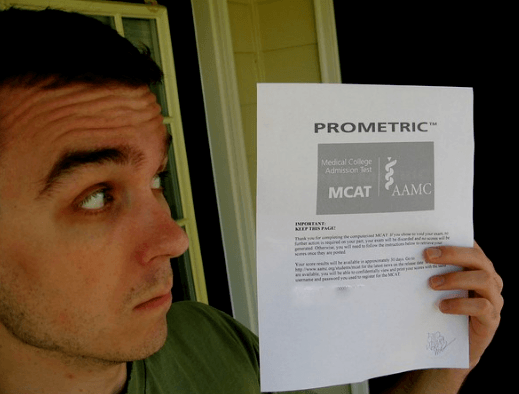
You Got in, Congrats! Now, What Can You Expect?
Even though the hard part seems over, you’re just getting started. Getting into medical school is exciting and a huge moment to celebrate, however this is just the beginning of the most strenuous and difficult process. You’ll be exposed to subject matters that you never think you can complete and tests that are complex and require you to think on a critical level.
The preparation process to get into med school layed out the basic fundamentals of which topics to expect. However, when you’re actually in med-school you’ll find each topic being broken down into smaller and specific parts. This will push you to maximize your capacity to think for yourself and apply knowledge.
These years will be some of the hardest years of your life. You will have little to no sleep and be pushed in every way. You have to spend hours working on a problem and you will need to develop the skills to regurgitate each information. There will be lots of anxiety and also moments where you want to back track and give up.
Keep on going and try to maintain a strong outlet. Find an activity where you can decompress and relieve yourself from mental straining. Medical school will put the discipline you thought you knew to the ultimate test. Your passion for medicine will be challenged as you navigate tests and rotations through a professional and academic level.
Tips for How to Make It Through Medical School
These years may be some of the hardest in your life. Our team wants to help you in any way possible by giving you some tips to give your a head start. For instance, in the beginning of your medical school process you need to figure out how to study in the most effective way. Everything in medical school depends on your ability to absorb information.
When you’re preparing for medical school, it can be common to pull all nighters and try to adapt to study time. However this method will fail you. You need to make sure your study techniques are top notch. You’ll be taking loads of information. Try to figure out how to study early and understand the material thoroughly.

Try to maintain a strong discipline of taking notes down. This can be hard in the beginning, but balance out the top main ideas. This is important because often students will take everything an instructor says word for word. Instead of jotting everything down when you jot down the concepts you’ll be able to understand it on a holistic level.
Additionally, an important skill is time management. Prioritizing your learning process is a strong way you can avoid cramming. Every topic will accumulate because pathology and physiology will be designated to intertwine sometime in the future. Continue to have study periods, but also break times to not burn yourself out.
Balancing Your Life While in Medical School
Medical school is physically and mentally straining. During this time you can get lost in your studies and clinical duties. It can be easy to forget about having fun or decompressing. It's important to have a balanced schedule to make room for your friends and yourself. Don’t ignore personal relationships because this is your lifeline that can help you decompress and have fun.
Make time for your hobbies. It can be as simple as taking a walk outside or joining a book club. Invest your time in something where you don’t have to be constantly talking about medical school or residents. This will be a perfect time for you to have mental recovery.
Think about interests you’re passionate about. If you don’t think you can do volunteering, think about something you can do for yourself. Do you enjoy watching netflix or singing? Your overall well-being depends on your hobbies so put yourself out there to try new things.
An important tip is that being busy does not equal success. If you’re overworking yourself and pushing yourself too hard you won’t perform any better. This will actually stall your process and give you immense fatigue. If you’re feeling happy and ready to go you can perform at your best.
How are Classes Structured in Med School?
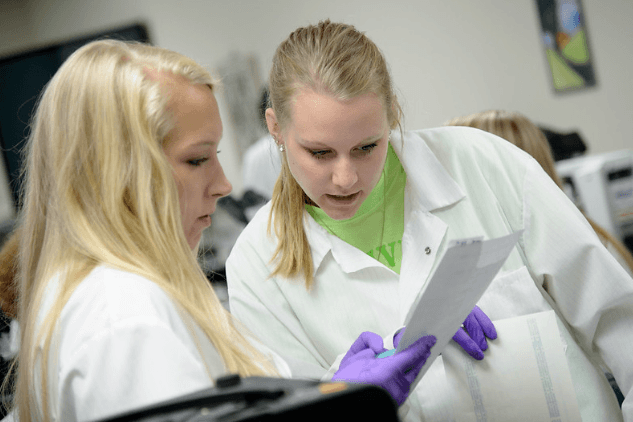
Your undergraduate years gave you an effective simulation of med school structures. The common structure is a combination of lectures and problem-based scenarios.
Similar to undergrad you’ll be listening to lectures and absorbing the information through studying.
You’ll be given a series of tests to build your knowledge. Medical schools want to challenge you so you’ll be exposed to basic sciences than clinical knowledge.
The problem-based methods will depend on you to build strong relations with a group of med students. This will help you work together to solve a patient case.
A person that will be keeping watch is known as the physician-moderator who will keep track of how to guide and correct any fallouts in the group. This also focuses on diagnosing the patient, which is an important part of your med school process.
Also depending on your medical school it can be built on a system-based curriculum. It means that your classes will be split by the body system. You will learn in depth of how each body system functions and how to specialize and treat different diseases.
Years 1 and 2 of Medical School
The year 1 of med school is known to be your hardest year of med school. It’s because this will be your first year exposed to the intense level of memorization you’ll need for each class. The classes will include basic science courses, but it’ll also include medical ethics courses and physical exams.
You have to go through hypothetical patient scenarios which will portray a patient with different clinical diseases. You have to go through different medical histories and examinations. One of the most challenging courses will be gross anatomy. It combines a series of images and lecture and lab.
You’ll also be exposed to learning about histology which the study of cells in the human body. You have to use microscopes and system based slides. Additional classes include pathology and biochemistry which will both be primarily lecture based.
Year 2 will be mostly clinically based which means that you will enter a variety of hospitals. This includes situations such as heart attacks, blood clot in the lungs, or heart failure. This time period you will figure out how to apply medicine and diagnoses in these situations.
Year 3 of Medical School
Do you enjoy interacting with people? Year 3 is mainly clinical rotations. This is when you will be part of a medical team. This will consist of an attending, residents, and interns. As a medical student you’ll be at the bottom, however you will work your way up within each year.
As you rotate different fields of medicine this is the time you’ll be exposed to clinical specialities. This time period is crucial because you’ll learn about OB/GYN, pediatrics, and psychiatry. This is when you’ll start to develop interest on what type of doctor you want to become.
Your team will grade you on your overall performance. It can be a little bit biased, however the national tests will determine your overall eligibility at the end of your rotations. Depending on your medical school, you’ll be required to pass this test and it can even be part of your final grades.
This year is a time for you to narrow down your interests. As you’ll be exposed to different attending and residents, it's important to start to build your network during this time. When you continue to build your social network you’ll have the ability to expand your professional connections.
Year 4 of Medical School
Congrats if you’ve made it to year 4! After all the time and investment you’re almost nearing a time of residency. Year 4 is a time that is much more specialized to the field of your interest. It is actually similar to year 3, but it's focused on your field of concentration.
Depending on which subject you liked, you can increase the level of knowledge you want to take in. You can elect to do gastroenterology or cardiology. The grading system will be almost identical to year 3 so you don’t need to worry about a drastic transition.
The first half of this year will include sub-internships and preparation. You’ll need to go into competitive surgical subspecialties which will be difficult to learn. Also for your residency application it will require your undivided attention because it will determine the next step of your doctor process.
The sub-internships will require around a month long interview which will require you to invest in long hours and will give you high stress. The timing of interviews will also vary and during match day is when you open your envelope to where you’ll get matched for your residency program.
How to Succeed in Medical School
After reading all the steps you may be wondering how to ultimately succeed in medical school. The fear of failure is real during your path in medical school. There’s an immense amount of outside pressures, but don’t you worry our team wants to prepare you for success.
A huge tip is to look at the bigger picture. In the rut of your exams or clinical rotations you’ll experience a wide range of challenges. It can be anything from academic to personal. You’ll come across so many different personalities and it can be hard to adjust socially. However, when you focus on the end result you’ll remember your purpose to get through med school.
A huge factor to consider is that medical school does not only depend on your book smarts. It is a huge ticket into medical school, however you will need a huge level of emotional intelligence. You’ll be surrounded by people wherever you go. You’ll be working with a team and interacting with patients on a daily basis. Your interpersonal skills will take you a long way in the medical field.
Lastly, this might seem like a common tip, but don’t be scared to ask for help. The first signs of discouragement are in the beginning years of medical school. It can be emotionally shocking for most beginning students. Remember to have a strong support system and ask experienced residents for advice and clarity.
